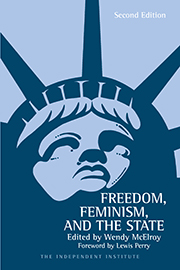The spotlight on Supreme Court nominee Samuel Alito’s position on abortion has shone so brightly that the issue has overshadowed another controversial question: Where does he stand on gun ownership?
It is just one example of how gun rights have been temporarily pushed aside. Issues like same-sex marriage, Hurricane Katrina, the price of gas and many other pressing questions are currently eclipsing gun rights. When the issue reassumes center stage, some will be surprised to see that it wears a somewhat different face—a more feminine face.
One thing is certain: The issue of gun rights will keep emerging not only because it has highly organized advocates and detractors, but also because the average person has become more concerned about personal safety in a post-Sept. 11 world. Recent events have heightened people’s concern.
For example, when the infrastructure of New Orleans collapsed in the wake of Katrina, many remaining residents were left without police protection. News reports of roving bands that looted, raped and murdered—whether those reports were accurate or not—made people reflect on how fragile police protection might be.
When the authorities in New Orleans systematically confiscated lawfully owned firearms, many commentators protested against leaving residents defenseless. They echoed Dave Kopel, Research Director of the Independence Institute, who declared in Reason Magazine: “To the extent that any homes or businesses were saved, the saviors were the many good citizens of New Orleans who defended their families, homes, and businesses with their own firearms.”
Now those same good citizens were deprived of self-protection.
New Orleans may be one reason that Gallup’s annual Crime Poll, released in mid-October, revealed that people’s confidence in their local police to protect them from violent crime fell from 61percent last year to 53 percent this year, which is a 10-year low.
Whatever the cause, a grassroots movement toward self-protection is quietly growing; in short, people are arming themselves. According to the U.S. Department of Justice, some 60.4 million firearm transactions were approved between 1994 and 2004. According to the National Rifle Association, a gun advocacy group: “The number of NICS checks for firearm purchases or permits increased 3.2 percent between 2003-2004.”
The personal trend is paralleled by a political one.
The number of “Right-to-Carry” States has risen from 10 in 1987 to 38 currently. Generally speaking, the term ‘right-to-carry’ refers to the right of responsible people to carry a concealed weapon. Packing.org provides a good overview of the differences between states.
Pro-gun women have gradually become more prominent in both the personal and public arenas, though the evidence is largely anecdotal. Statistics on this trend are difficult to locate and confusing; they have become a source of controversy in-and-of themselves, as gun control advocates argue that claims of female gun ownership are often inflated.
Organizations dedicated to female gun ownership are spreading from well-established organizations like Second Amendment Sisters and Women and Guns to relatively new ones like Mother’s Arms, which urges mothers to protect their children with armed force if necessary.
Media accounts abound. For example, on Nov. 14, ABC News reported: “When she moved from California to Arizona, Judy Dutko, had a short list of must-dos upon her arrival in her new home: obtain a driver’s license, join a church and register for a gun.”
Several factors may contribute to the emerging prominence of female gun owners.
One factor is the increased presence of women in the military. More women are becoming comfortable with the feel and use of firearms. And, as the media showcases the role of military women, the general public is becoming more accustomed to—and, presumably, comfortable with—the sight of women and weaponry.
Another factor is the active recruitment of women that has been conducted by pro-gun organizations over the last decade. For example, the NRA founded the subgroup Women On Target. WOT expands women’s use of firearms from self-defense into the traditional male-bastion of hunting and recreational shooting.
WOT states: “There are currently about two million American women who hunt and an additional four million who enjoy target shooting. These numbers are steadily increasing.”
According to NRA spokeswoman Kelly Hobbes, the NRA’s classes for women have grown from 13 five years ago to 200 today.
Female gun ownership has become more fashionable in a literal sense as well, as companies like Browning Firearms illustrate. About three years ago, the 109-year-old Utah firm, renowned for producing quality guns, reacted to market demand by establishing a line of shooting apparel for women.
Another contributing factor: the rise of unmarried women and single moms. Such women may feel more vulnerable to crime and, so, are more open to radical options of self-defense.
Daily life and normal concerns will slowly reassert themselves in the wake of controversies, tragedies and disasters. As this happens, gun ownership will be among the issues to return in full force. Indeed, if the furor over San Francisco’s recent ban on guns is any indication, then that process is well underway.
Some advocates will be pleasantly surprised to see that the feminization of gun ownership has continued throughout the chaos; guns have become a "women’s cause" conducted, as Women Against Gun Control claims, by “ladies of high caliber [sic]” Others will be appalled.
Me? I’ll be on my feet, applauding the women (and men) who are standing up for their human and constitutional right to self-defense.









